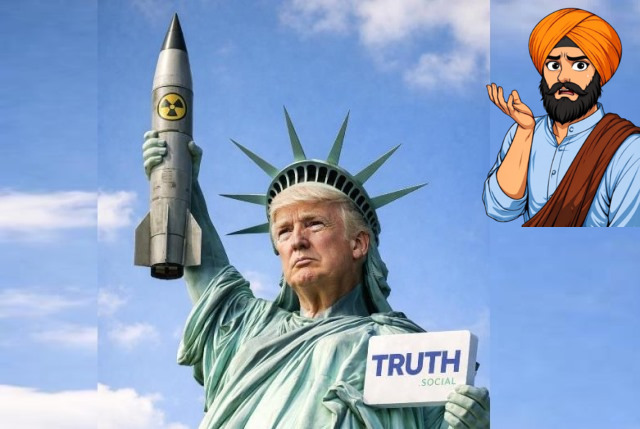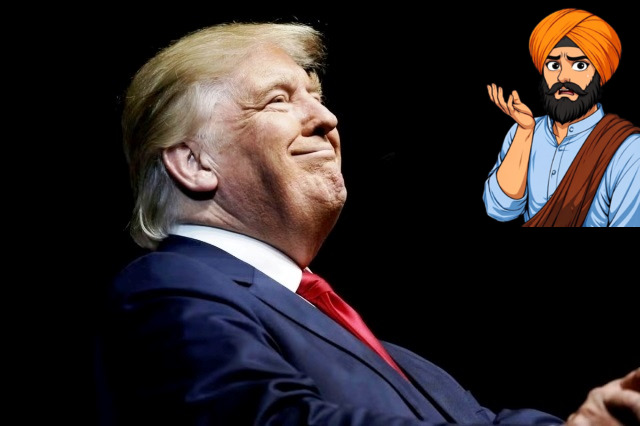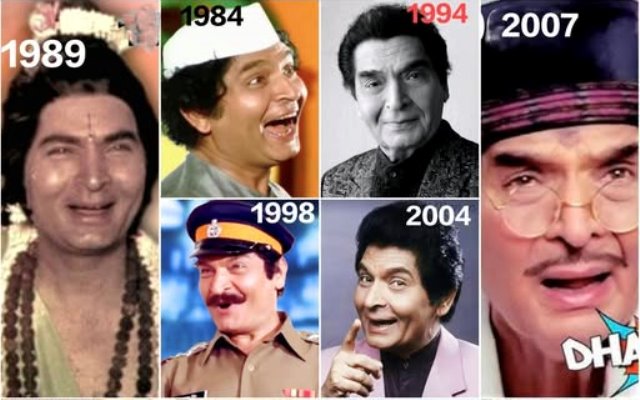
Rahul Gandhi Is At The Last Chance Saloon And It’s Not Looking Good
The Economist, the British publication that is often described as a weekly newspaper published in a printed magazine format, appears to have a soft spot for Rahul Gandhi, the leader of the Indian National Congress and the scion of the Nehru-Gandhi dynasty that runs that political party. A few days before the first phase of India’s gargantuan parliamentary elections was held, the publication joined Gandhi on his campaign trail and ran a piece that tacitly implied that Gandhi, 53, who holds no official position in his party, had got his mojo back.
The piece did list the main challenges that the Congress faces: the lack of an ideological alternative to Prime Minister Narendra Modi’s dominant and seemingly unstoppable Bharatiya Janata Party (BJP) whose amalgam of Hindutva and economic development has proved to be a successful electoral recipe; the lack of organisational discipline in the Congress; and Gandhi’s own lack of experience–he has never run a state nor a central ministry.
Yet the Economist’s piece on Gandhi was hopeful–a contrarian view from what many others think of him–and concluded that if the Congress had to reverse its decline, Gandhi would have to step up or step aside.
Gandhi actually has had more chances than any political leader is usually lucky to get. He has led the party’s defeat in two parliamentary elections, in 2014 and 2019; he has seen the number of seats that his party along with its allies have won plummet to just 52 out of 543; and has seen it lose several state elections–the Congress now rules in just three out of India’s 28 states.
Yet, it is a silly season that is underway in Indian politics–six more phases of elections will be held and no exit polls will be allowed till the last vote is cast on June 1–and all manner of speculation, some of it nonsensical, abounds. A few days before the first phase of elections was held, the prominent Congress leader, Jairam Ramesh, 70, commenting on a quote of Prime Minister Modi, posted on X: “A pathological liar who plumbs new depths of lies every day. Just two more months, though, of this man as PM.”
The Congress and its supporters have been circulating various prophecies, including a now-deleted opinion poll that suggests the Congress-led big-tent alliance of 41 opposition pirates would get more seats than the BJP-led National Democratic Alliance. On their part, Modi and the NDA have made no bones of their expectation that they would win 400 seats or more in the ongoing elections, which, if it happens, would mean a massive 74% majority.
The BJP’s confidence shows. When the first phase of elections ended last Friday evening, Modi, who with 97.3 million followers is the 7th most popular on X (former US President Barack Obama is the only politician who has more, while another ex-Prez Donald Trump has less), posted: “Getting EXCELLENT feedback from today’s voting. It’s clear that people across India are voting for NDA in record numbers.”
Everyone, including the media in India, political commentators, and international media publications (who are more critical of Modi and his regime than their Indian counterparts), has by and large concluded that a third term for Modi as Prime Minister and a huge mandate for his party and its allies is all but assured and that the only matter of interest is how many seats they get when the results are declared on June 4–more than the 346 that they now have or less.
Gandhi And His Team’s Third Test
Let us assume that the prevalent view that Modi will be reelected as Prime Minister for the third time comes true. What about the Congress? After his party’s dismal showing in 2014 and 2019, this year’s election is a crucial test for Gandhi. The Congress could end up with either more seats than the paltry 52 that it currently has in Parliament, or less. What would those scenarios mean for the scion of a party that was once the dominant political organisation in India and one that has its roots in the first nationalist movement to emerge in the British Empire. The Congress was formed in 1885, which makes it 139 years old. For 48 years, or nearly half a century after Independence in 1947, the party has helmed India’s government and for many years it also ruled in most of India’s states.
But its decline has been swift and shocking. In 2014, the Modi-led NDA first dealt it a blow (the Congress that year won just 44 seats); in 2019, it was a repeat. If 2014 was a wake-up call, 2019, was a plaintive cry for survival.
Yet, on the face of it, the party’s leadership did little. Yes, Gandhi himself sort of took the blame for the electoral debacle, resigning as party president in 2019, and refusing to remain in any official position in the party. His mother, Sonia Gandhi, widow of former Prime Minister Rajiv Gandhi, continued as interim president of the party before a veteran leader, Mallikarjun Kharge, who is 81, was appointed as president in 2022.
Publicly Congress leaders would like to describe Kharge’s appointment as a demonstration of non-dynastic meritocracy in the Congress but, in private, they scoff as loudly as Congress’s rivals. For everyone knows that it is still one family, the Nehru-Gandhis, which continues to call the shots in the party. In other words, it is Gandhi, his mother who is 77 and in indifferent health, and his sister, Priyanka, 52, who is a general secretary of the party, who control everything in the party. Every other leader in the party has to be subservient to the family. Or else they have to leave.
Many have. In significant droves. Since 2014, several promising Congress leaders, some of them young, enthusiastic and credited with the potential to turnaround the fortunes of the party have ditched it. Their reasons for leaving are simple: the way the party is controlled by the family. Many of them have joined the BJP, which has become a kind of equal-opportunity recruiter of political talent from across the spectrum of opposition parties. If an opposition politician has the heft to get votes, the BJP’s doors are open for him or her.
The situation is so grave for Congress that besides some old-timers, many of whom are at the terminal stages of their political careers, there are few who remain that can revive the party. When the results of the ongoing elections come out in June, for Gandhi and his family it could be the last chance to do something about an organisation that is sliding in a spectacular political avalanche. Or, would it be too late?
Stepping Aside Could Be the Only Option
A third electoral debacle would be severely humiliating for Gandhi but catastrophic for his party. He is the main challenger to Modi and seen as the real leader of his party–whether or not he has an official post in Congress is irrelevant.
If, in the first scenario, the Congress ends up with, say, 50-100 seats this time, what should Gandhi do? A charitable suggestion is that he should step aside from all party work and, although it depends on his personal choice, probably from politics altogether. Indians looking at Gandhi’s track record would have had enough of him and even those who support his party would probably not want him around anymore. If he or his party would like him to continue even after another electoral drubbing, he would be a parodistic personality inviting rebuke rather than respect. Not an image that anyone would cherish for himself.
There is, of course, a second scenario. Let’s assume hypothetically that the opposition’s Indian National Developmental Inclusive Alliance (INDIA) flies in the face of prevailing public perception and wins the elections (caveat: I said “hypothetically”!).
INDIA is made up of 41 parties but is chaired by the Congress president Kharge. Besides the Congress, the constituent parties in the alliance include smaller national parties, communist parties, and several regional parties from different states, including those representing minorities such as Muslims, discriminated castes, and tribals.
It is a sort of hodge-podge of parties from across the ideological spectrum that lies outside the bounds of the BJP’s Hindutva plus development plank. Formed less than a year before the ongoing elections began, already some of the original member parties have left, notably Bihar’s Janata Dal (United) led by the original convenor of the alliance, Nitish Kumar, who left to ally with the BJP.
Nevertheless, let’s assume the INDIA gets to form a government on the strength of a hypothetically higher number of seats than the NDA that it wins. Each of its constituents will wield varying degrees of power on account of the number of seats it wins and brings to the kitty. Some of them are strong in their home states and regions and can dictate terms in the formation of the government. How many of them are likely to agree to a Prime Minister from the Congress party? And even if they do, how many would vote in favour of Gandhi?
As I said, it is the silly season now, a time when speculation abounds. So let me leave you with those two questions to speculate about, purely hypothetically.
For more details visit us: https://lokmarg.com/
Rahul Gandhi has preferred not to hold any office in the country’s oldest political party. The old man Kharge being the President does not mean dynastic rule has ended. In the party the writ of Sonia and Rahul still runs. The Economist and a few other foreign publications may have some interest in Rahul – there is nothing wrong in that – but sadly for the uncrowned supremo in Congress, he has so far failed to connect with the masses. In stark contrast, Modi has the capacity to hold fort when addressing big election meetings. It doesn’t matter that the promises made at such meetings are not meant for redemption. Some pollsters may be giving a chance to the amorphous INDIA. But there is no chance of stopping the Modi juggernaut. Rahul himself will win the election from Wayanad in Kerala. But what remains to be seen if his party will be able to improve its Lok Sabha tally. Not many believe Rahul has the capacity to stop further decline of Congress, not to speak of reversing its fortunes. His future will be restricted to sitting in Lok Sabha, make interventions from time to time, whatever they are worth and rue the further inevitable wilting of Congress.



